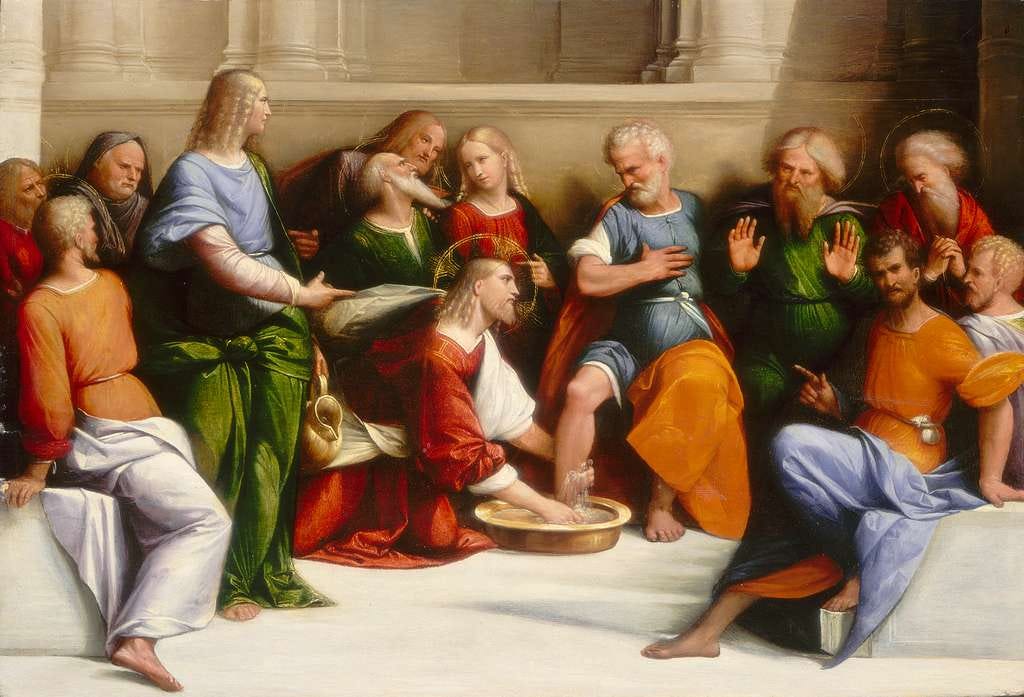Introduction
Fr Juan Luis Segundo (1925-1996), a Jesuit priest from Uruguay, describes John’s Gospel as an attempt to explore more deeply than the other gospel writings, what it means to be a Christian. Some scholars refer to the Gospel as a “book of new beginnings” and Segundo directs his readers to the first four chapters of the Gospel as evidence of this different and unique approach to giving an account of the life and teachings of Jesus.
We will find the same deeply reflective approach used throughout the entire Gospel. For example, the Last Supper account begins in Chapter 13 and ends with Jesus and his disciples leaving the upper room at the beginning of Chapter 18. Unlike the synoptic Gospels, the institution of the Eucharist is not recalled. John focuses, instead, on Jesus’ prayer for his disciples and for the world, and on his teaching about the Church and the tension between the Church and the world. It is in this part of the Gospel that we find the image of the vine and the branches and his teaching about the love for one another that characterises his disciples.
The four chapters of the Gospel that follow the story of Jesus washing the feet of his disciples flow from his act of service and should serve as a reminder to us that our actions in life should also be supported by prayerful reflection on the love of God for all of creation.
The Gospel
It was before the festival of the Passover, and Jesus knew that the hour had come for him to pass from this world to the Father. He had always loved those who were his in the world, but now he showed how perfect his love was.
They were at supper, and the devil had already put it into the mind of Judas Iscariot son of Simon, to betray him. Jesus knew that the Father had put everything into his hands, and that he had come from God and was returning to God, and he got up from table, removed his outer garment and, taking a towel, wrapped it round his waist; he then poured water into a basin and began to wash the disciples’ feet and to wipe them with the towel he was wearing. He came to Simon Peter, who said to him, ‘Lord, are you going to wash my feet?’ Jesus answered, ‘At the moment you do not know what I am doing, but later you will understand.’ ‘Never!’ said Peter ‘You shall never wash my feet.’ Jesus replied, ‘If I do not wash you, you can have nothing in common with me.’ ‘Then, Lord,’ said Simon Peter ‘not only my feet, but my hands and my head as well!’ Jesus said, ‘No one who has taken a bath needs washing, he is clean all over. You too are clean, though not all of you are.’ He knew who was going to betray him, that was why he said, ‘though not all of you are.’
When he had washed their feet and put on his clothes again he went back to the table. ‘Do you understand’ he said ‘what I have done to you? You call me Master and Lord, and rightly; so I am. If I, then, the Lord and Master, have washed your feet, you should wash each other’s feet. I have given you an example so that you may copy what I have done to you.’ (John 13:1-15)
The Enquiry
See
What happens in this Gospel scene? What makes it different from similar occurrences reported in the Gospel?
What is the reason given for Jesus washing the feet of his disciples? How does Jesus respond to Peter’s objection?
What has happened in the world because Jesus chose to be a servant to his disciples?
Judge
A Jewish social custom has become a Christian religious ritual. What do you think about this?
How important is it to show respect for others and to contribute towards honouring their human dignity?
In what areas of your life are you challenged to change because of Jesus’ example of servant leadership?
Act
What are you being drawn by God to change in yourself and in the world?
What small action can you commit to carrying out that will reflect the love God has for the world and for you?
Who can you involve in your action, when, where and how often?
Image Source: Garofalo (Creator), Sixteenth century painting: Christ washing the disciples’ feet, National Gallery of Art, Picryl, public domain image.
Worth reading: Segundo, J. L. (1973). Grace and the human condition. Maryknoll, New York: Orbis Books.


